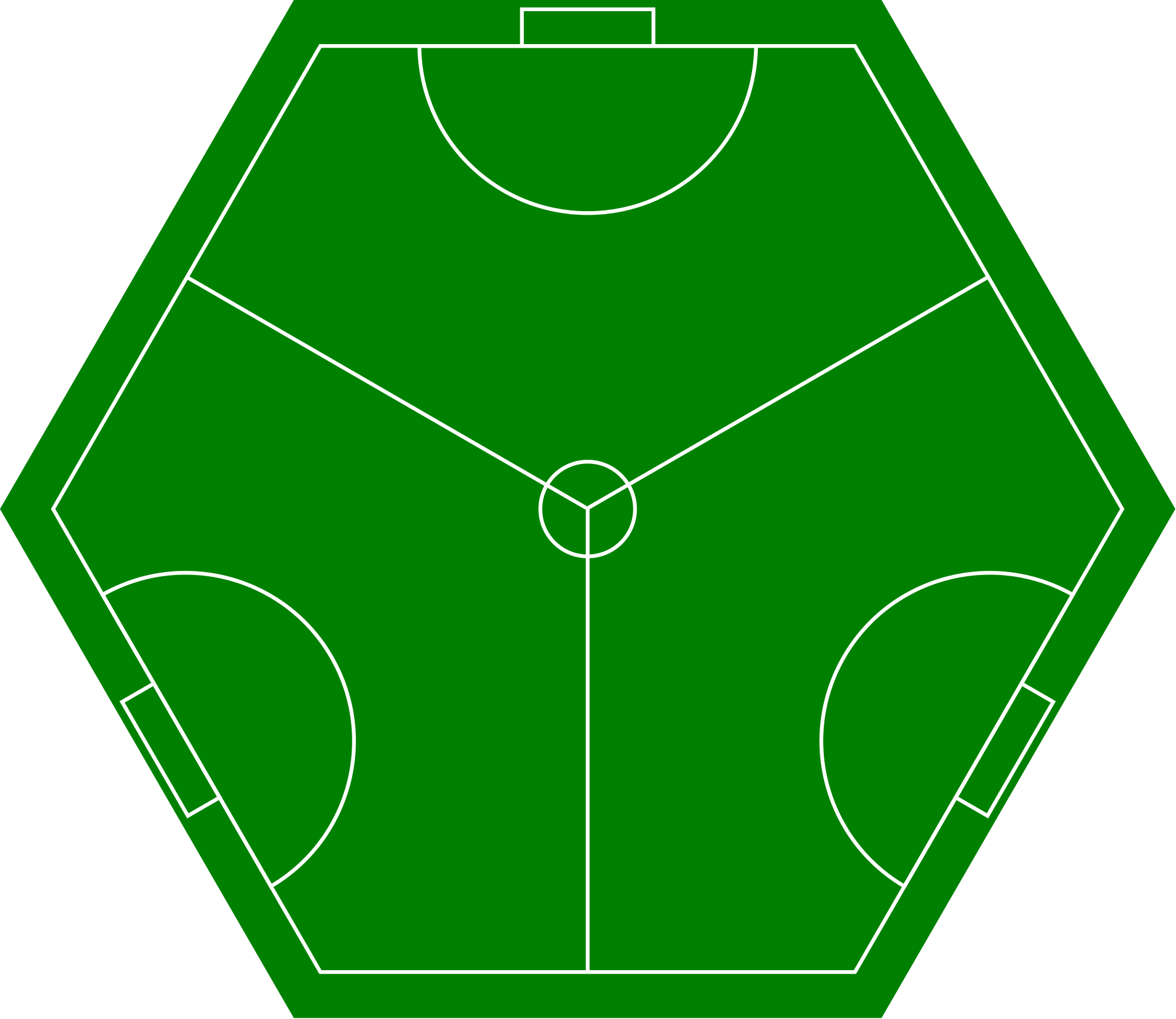This is a second post about DiGRA 2015.
For DiGRA 2015, organizers took the time to set out three nets on the odd numbered edges of a hexagonal field. They asked for participants to re-enact the Situationists’s three-way soccer. Eventually 24 people showed up, with over 100 watching from the sidelines eating catered conference food. It was during this game that I lost faith in humanity, while finding value in experimental sports.
As it turns out, of the three teams, two were evenly matched and a third was far superior. They were taller, stronger, and faster. It also turns out that one of the nets was twice the width of the others, making it the easiest place to score by a mile. To rectify this unfair position, it was decided that every 20 minutes the teams would move to the next net clockwise. In the end, victory would go to the team which had the fewest goals scored against them.
The far superior team (henceforth team A), started in the large net. Clearly, in this situation, teams B and C needed to band together and attempt to apply as much pressure on team A. Perhaps I was the only one on team B or C to realize this because I hate soccer. Neither my own teammates, nor my opponents on team C trusted each other, and so neither would pass to each other and at the same time they would take opportunities to score on one another if it was convenient. Team A, which heard my pleas to team C in asking them to join us, repeatedly made attempts to sew dissent, damage my credibility as a spokesperson for my team (a position I admittedly made up) and even offered to join team C as the better ally.
Needless to say, after 20 minutes, the score is 0, 2, 1 for teams A, B and C respectively. Furious with team C for refusing to co-operate, I offer team A the same deal. I explain to them that we are in last place, that team C is the only threat to their victory and that we want to secure second place. Fuck team C. 40 minutes in, score is 0, 2, 3 and I am smug.
At this point, the path to victory remains the same, if only more elusive. I offer a tentative agreement to team C, which they accept licking their wounds from the second third. A combined offensive should have some kind of potency against team A. Unfortunately, my own player sees an opportunity and attempts to score on team C. He is one of our top players, but he, like so many others, just wants to play soccer and doesn’t see the greater geopolitical struggle…. I know how that sounds, but I take game playing seriously…. From the sub bench, I run onto the field and with no authority tell him to get off. His bullshit was no longer to be tolerated. He is blown away and has no idea what is going on, but seems to take it in stride as he walks off. At this point, team C is able to regain some trust. I even purposefully and repeatedly pass them the ball and just point at team A’s immaculate net. For nearly 10 minutes we put in a concerted effort to score on team A, but by this point they are in the small net and have all the defense and talent in the world to hold out. Everyone should have listened to me when we had them in the big net.
Moral of the story: Life is unfair and powerful forces will prey on the weak, divided them and convince them that they are each other’s enemy. The weak’s recourse is organization, trust, and, most importantly, forgiveness for when that trust is inevitably violated in ignorance. When two soccer team’s worth of game scholars can’t see that until it’s already too late, then all I want to do is cry. Meanwhile, this is a great time to be a game scholar, because games like this are so potent at convincing people of wider systems and so few know it. If it were up to me, I would ban the false consciousness inducing two-way soccer and force the world to repeatedly encounter the messy political hell that is three-way soccer.

